- Home
- Mike Lupica
The Underdogs
The Underdogs Read online
Table of Contents
Copyright Page
Title Page
Dedication
Acknowledgements
CHAPTER 01
CHAPTER 02
CHAPTER 03
CHAPTER 04
CHAPTER 05
CHAPTER 06
CHAPTER 07
CHAPTER 08
CHAPTER 09
CHAPTER 10
CHAPTER 11
CHAPTER 12
CHAPTER 13
CHAPTER 14
CHAPTER 15
CHAPTER 16
CHAPTER 17
CHAPTER 18
CHAPTER 19
CHAPTER 20
CHAPTER 21
CHAPTER 22
CHAPTER 23
CHAPTER 24
CHAPTER 25
CHAPTER 26
CHAPTER 27
CHAPTER 28
CHAPTER 29
CHAPTER 30
CHAPTER 31
CHAPTER 32
CHAPTER 33
CHAPTER 34
CHAPTER 35
PHILOMEL BOOKS
A division of Penguin Young Readers Group. Published by The Penguin Group.
Penguin Group (USA) Inc., 375 Hudson Street, New York, NY 10014, U.S.A. Penguin Group (Canada), 90 Eglinton Avenue East, Suite 700, Toronto, Ontario M4P 2Y3, Canada (a division of Pearson Penguin Canada Inc.). Penguin Books Ltd, 80 Strand, London WC2R 0RL, England. Penguin Ireland, 25 St. Stephen’s Green, Dublin 2, Ireland (a division of Penguin Books Ltd). Penguin Group (Australia), 250 Camberwell Road, Camberwell, Victoria 3124, Australia (a division of Pearson Australia Group Pty Ltd). Penguin Books India Pvt Ltd, 11 Community Centre, Panchsheel Park, New Delhi—110 017, India.
Penguin Group (NZ), 67 Apollo Drive, Rosedale, Auckland 0632, New Zealand (a division of Pearson New Zealand Ltd). Penguin Books (South Africa) (Pty) Ltd, 24 Sturdee Avenue,
Rosebank, Johannesburg 2196, South Africa. Penguin Books Ltd, Registered Offices:
80 Strand, London WC2R 0RL, England.
Copyright © 2011 by Mike Lupica. All rights reserved.
This book, or parts thereof, may not be reproduced in any form without permission in writing from the publisher, Philomel Books, a division of Penguin Young Readers Group, 345 Hudson Street, New York, NY 10014. Philomel Books, Reg. U.S. Pat. & Tm. Off.
The scanning, uploading and distribution of this book via the Internet or via any other means without the permission of the publisher is illegal and punishable by law.
Please purchase only authorized electronic editions, and do not participate in or encourage electronic piracy of copyrighted materials. Your support of the author’s rights is appreciated.
The publisher does not have any control over and does not assume any responsibility for author or third-party websites or their content.
Published simultaneously in Canada.
Library of Congress Cataloging-in-Publication Data
Lupica, Mike. The Underdogs / Mike Lupica. p. cm.
Summary: Small but fast twelve-year-old Will Tyler, an avid football player in the down-and-out town of Forbes, Pennsylvania, takes matters into his own hands to try and finance the city’s football team, giving the whole community hope in the process.
[1. Football—Fiction. 2. Community life—Pennsylvania—Fiction.
3. Pennsylvania—Fiction.] I. Title. PZ7.L97914Un 2011 [Fic]—dc23 2011011762
ISBN : 978-1-101-53568-4
http://us.penguingroup.com
Also by #1 Bestseller Mike Lupica:
Travel Team
Heat
Miracle on 49th Street
Summer Ball
The Big Field
Million-Dollar Throw
The Batboy
Hero
For my pal Elmore Leonard
ACKNOWLEDGMENTS
As always, my wife Taylor and my four children—
Christopher, Alex, Zach, Hannah—
inspire me every single day.
But I also want to give special thanks
on this book to four others:
Gerry Callahan, who shared so much
of his passion for youth football.
The great Esther Newberg, who imagined
this group of underdogs even before I did.
And my Mom and Dad.
Just because.
CHAPTER 01
Just about everybody who’d ever seen Will Tyler play said the same thing—that he could fly on a football field.
He was definitely flying now.
Ball tucked firmly in the bend of his arm, open field in front of him. A slight wind at his back. Not that he needed it.
At midfield he made an effortless cut to his left, switching the ball from his right hand to his left in the process.
Will did it without even thinking, did it on instinct, one more move that nobody had to teach him. Not even his dad, who’d been a star running back in this same town, on this same field.
Back when the field was in much better shape. And the town was, too.
But Will’s dad always said that even on his best days, all the way through high school, he was never as fast as Will.
“You’ve got that gear,” he told Will once.
“What gear?”
“That extra gear that the great ones have,” Joe Tyler said.
Will shifted into that gear now.
Flying, like the wind at Shea Field wasn’t just behind him, it was trying to keep up with him.
At the thirty he cut back again, back to his right, angling toward the sideline. Switching the ball back to his right hand. Imagining that he was watching himself on one of those giant screens most NFL stadiums have now, pretending he was trying to see if anybody was gaining on him.
Knowing that nobody would be.
Twenty-yard line now.
Fifteen.
Only the end zone ahead of him.
And that’s when he went down.
He hadn’t been tackled. He’d stepped into a hole at the five-yard line.
He hadn’t seen it because he had his eye on the prize, like always. Just felt his right foot go into it, the leg collapsing, like he’d been tripped. Like he’d been caught from behind. Just like that.
Will was mad. The beat-up field at Shea was the only thing that could stop him. And it had. And had cost him a touchdown. Of course he knew it could have been worse, he could have rolled an ankle or hurt his knee the way his dad had once. It had been his senior year in high school. His dad hadn’t stepped into a hole, though. He’d just made a cut into the secondary and thought he was about to break into the clear when he got hit by tacklers from both sides, at the same exact moment, their helmets meeting at his right knee.
In so many ways, too many ways for Will to even count, it was a hit from which his dad still hadn’t recovered.
Will had gone down hard but knew he was all right, knew he would have no trouble getting back up. The only burn he was feeling now was embarrassment.
The same he’d felt last season after the fumble against Castle Rock.
He sat there, ball under his arm, thinking:
It’s a good thing I’m alone.
Alone with his ball, alone on this field, no teammates or opponents there to see him trip and go down, nobody to see somebody this good at football look so bad.
He turned and saw how deep the hole was. One of many at Shea Field, a field that the town seemed to have forgotten, or maybe just given up on, the way it was about to give up on a football team and a football season for twelve-year-olds like Will Tyler.
The town council of Forbes had made it clear a couple of weeks earlier that there wasn’t enough money in the budget to finance all the local sports teams, as it had in the past. Th
ey’d said that some of the younger age groups might have to suffer so that no programs were cut at Forbes High School. They’d said it was more expensive than ever to finance football teams, telling the parents there had been barely enough in the budget to let Will’s eleven-year-old team compete last season in the West River Youth Football League, Forbes’s version of Pop Warner. Now unless somebody in town could come up with the money in a few weeks, enough money to cover membership in the league, helmets, uniforms, field maintenance, emergency services, insurance—what Will’s dad called “the full boat”—there would be no football for twelve-year-olds this year.
No team, no practices, no games, no shot at the league title Forbes had come within a touchdown of winning last season.
Maybe, Will thought—alone on this field, two yards short of the end zone—a run like this in an imaginary game would be the only kind he would get to make this year.
CHAPTER 02
Will felt as if football was about to leave Forbes the way the sneaker factory had.
Technically the factory hadn’t left, he knew. It was still there on the river, only it was empty now the way it had been for most of Will’s life. It was the business that had left, the business that used to make Forbes Flyers, once one of the most famous athletic-shoe brands in the country.
That was before other companies began to dominate the business with cool sneakers of every color, for every sport. And even cooler catchphrases and commercials, with endorsements from the hottest athletes. Those other companies became what his dad called the “superpowers” of the sneaker business, and they had wiped out Forbes Flyers like powerful armies invading a tiny nation.
“It wasn’t that Nike or any other others were doing anything wrong,” Joe Tyler told Will once. “They were just selling shoes and giving the people what they wanted. But in the process, it was like they wiped out the world we’d grown up in, the one built around that factory.”
Now his dad wondered how Forbes Flyers had held on as long as they had, before the shoes with the cool wings logo finally just disappeared.
When they did, the factory where his father had worked and his grandfather before him went with them. Some of the people who had worked there found other jobs in Forbes. A lot more moved away.
Will knew all about it by now, the sad history of the business and the town, just because he’d grown up hearing his dad talk about it so much, like somehow his own life story was tied up with the story of the Forbes Flyers. It was like a book Will had not just read, but re-read, a movie he had seen over and over again. Families gone. Friends gone. Houses empty and yards ignored. Will was pretty sure that the only successful business in Forbes was the one that printed the “For Sale” signs.
And yet across the river sat the town of Castle Rock, home of Castle Rock Springs, the bottled water company that was thriving. It was only a few miles from Forbes to Castle Rock. To Will it felt like the people who lived there, the kids growing up there, were on the other side of the world. A world people moved to and not away from. A world where people didn’t worry about abandoned neighborhoods and empty factories and football seasons lost.
Guys Will’s age were going to have a season over there, that was for sure. Another great season, no doubt. The kind they always seemed to have, playing on a two-year-old turf field that was in better condition than most of the high school fields in the area. Wearing the new uniforms they got every single year.
There were a lot of days when Will would sit by himself on the river and just stare at the world across the water, wanting to be over there, wanting to play on their team. He never said that out loud to anybody, certainly not to his dad. He would never say anything in front of his dad that sounded like whining or complaining, no way. Not when he knew the story of his dad’s life, knew how hard he had worked to take care of Will from the time his mom had died, back when Will was just two years old.
How hard his dad was still working.
It didn’t change the fact that Will thought he was growing up on the wrong side of the river.
At dinner that night Will said to his dad, “How come we can’t play one more season with last year’s uniforms? That would save us some money right there.”
His dad started to smile, then stopped himself, as if he knew none of this was funny to Will.
“Last season was the one more season with those uniforms,” his dad said. “After the last game, they bagged them up and carted them away. Helmets, pads, the whole deal.”
“Then we’re going to have to raise the money ourselves,” Will said.
“Who’s we?” his dad said.
“The guys on the team.”
“All fourteen of you?”
There were times last season when only eleven guys suited up for games. It was as if some of the kids—or their parents—were giving up on football before football gave up on them.
Will said, “We can do it.”
“In two weeks?”
Will managed a smile. “Hey, whose side are you on?” “Yours,” his dad said. “Always. But you’ve got about as much chance of finding that money in Forbes right now as you have of finding gold in the river.”
His dad had gotten home late tonight. He was still wearing the shorts he wore in summer when he was delivering the mail.
Will pounded the table, hard enough that his water glass started to tip over before he caught it.
“I’m not letting them take football away from me!” he said. “They’re not supposed to be able to do that.”
In a quiet voice his dad said, “And the factory wasn’t supposed to shut down. And the banks weren’t supposed to own half the houses in town.”
“But, Dad,” Will said, “I can . . .”
He didn’t need to finish the thought, because his dad did it for him.
“You can flat-out play,” Joe Tyler said. “Nobody knows that better than I do. Now that’s enough complaining. Finish your dinner.”
Will could play. He wasn’t the biggest kid his age in Forbes, or even close. Truth was, he was closer to being the smallest in his seventh-grade class, height-wise, than he was to being the biggest. When he’d shown up for tryouts last season, the coach thought Will was too small to be a halfback.
That lasted until they were midway through their first scrimmage, Will finally getting his chance to line up behind the quarterback. He took a handoff on what was supposed to be a simple belly play and turned it into an eighty-yard run.
That was when Coach Jerry York, found out that Will could fly.
By the time the regular season was over, he’d scored sixteen touchdowns in eight games and Forbes, even though there were those days when they only suited up the mandatory eleven and prayed nobody would get hurt, made it all the way to the West River championship game before losing to Castle Rock.
Will scored three touchdowns that day and gained nearly two hundred rushing yards. All before the hit from behind caused him to fumble the ball at the Castle Rock ten-yard line with only sixteen seconds left to play.
Will felt terrible, as if he’d let his entire team down. He still felt terrible about that fumble. But when the game was over, the Castle Rock quarterback, Ben Clark, whose father owned the bottled-water company, grabbed Will and said, “The only thing you did wrong today was wear the wrong uniform. Dude, next season you gotta come play with us.”
Will thanked him but said he was fine where he was. Thinking that the only thing he wanted to do next season was come back and beat those guys, straight up.
Only now there might not be a next season.
“It’s not fair,” he said to his dad now, knowing that he was right up against that line, the poor-me line he couldn’t cross.
“You’re right,” Joe Tyler said, taking his plate over to the sink. “It’s not fair. Soon as we clean up, I’ll add it to the list of the other things in life that aren’t.”
Will could see how tired his dad was, knew it had been one of those days when he was off the truck and deliver
ing mail in town on foot.
On that knee.
It was one of the reasons Will worked so hard not to complain—not to cross that line—because his dad almost never did, even though he had a lot more reason to.
There was a long silence between them while they did the dishes, his dad washing and Will drying, Will wanting to change the subject from his own problems with the team. So he finally said, “How was work?” because that was the best he could do.
His dad said, “Sometimes I think they’ll close down the Postal Service the way they did the sneaker factory. There won’t be paper mail anymore, just e-mail. Don’t need a postman for e-mail.”
Then he walked slowly up the stairs, limping slightly, to take a hot shower, saying he’d be back later to watch the Steelers preseason game.
Once, Will knew, his dad had dreamed about going to Pitt to play college football, or Penn State, or even Notre Dame. Back when he was the star running back in town.
That was before his knee exploded.
He said he still loved football, but Will wasn’t so sure, wasn’t sure if watching the games was another kind of hurt for Joe Tyler. But he said he loved the Steelers as much as he ever had and would make a show of getting into the games, even though on nights like this, Will knew his dad’s enthusiasm for the game would fade. That there would be a time in the second half when he’d look over and his dad’s chin would be on his chest and he would be snoring softly.
It was still early in tonight’s game, midway through the first quarter, when Will’s dad surprised him, as though Joe Tyler had been having a conversation inside his own head and was only now deciding to include Will.
“We can’t move,” he said.
Meaning, to Castle Rock.

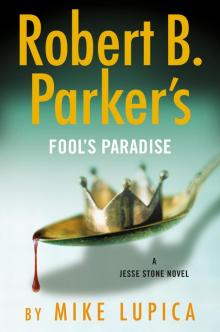 Fool's Paradise
Fool's Paradise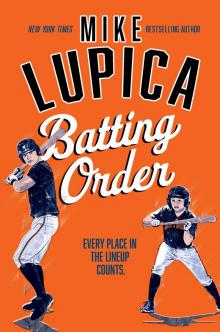 Batting Order
Batting Order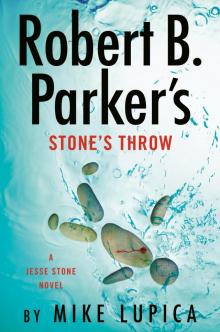 Stone's Throw
Stone's Throw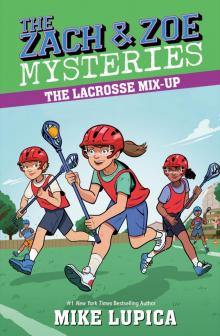 The Lacrosse Mix-Up
The Lacrosse Mix-Up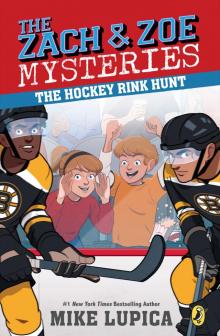 The Hockey Rink Hunt
The Hockey Rink Hunt Payback
Payback Triple Threat
Triple Threat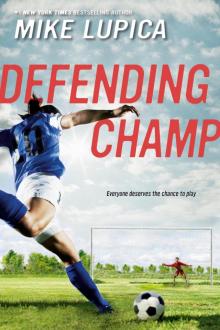 Defending Champ
Defending Champ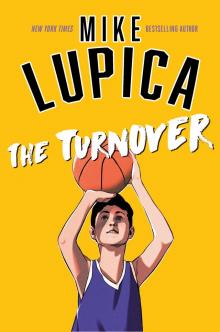 The Turnover
The Turnover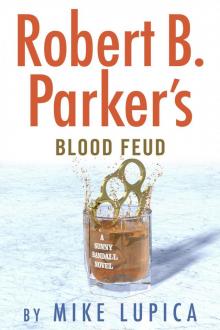 Robert B. Parker's Blood Feud
Robert B. Parker's Blood Feud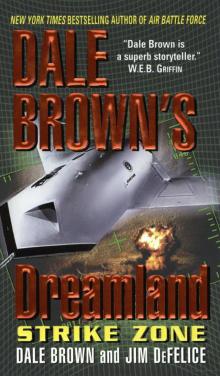 Strike Zone
Strike Zone Hero
Hero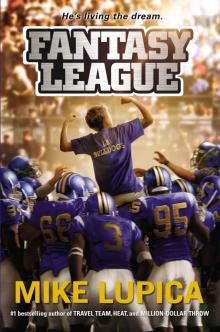 Fantasy League
Fantasy League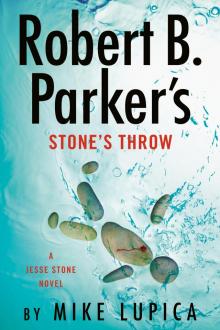 Robert B. Parker's Stone's Throw
Robert B. Parker's Stone's Throw The Big Field
The Big Field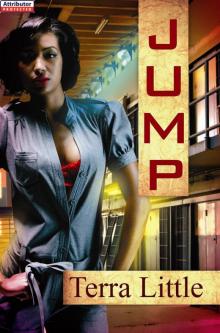 Jump
Jump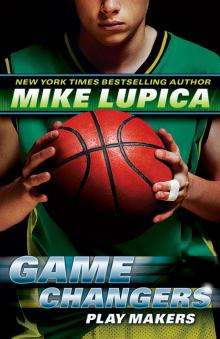 Play Makers
Play Makers The Underdogs
The Underdogs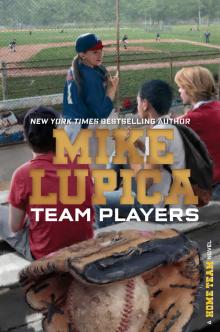 Team Players
Team Players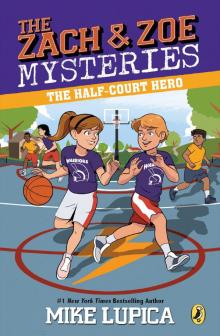 The Half-Court Hero
The Half-Court Hero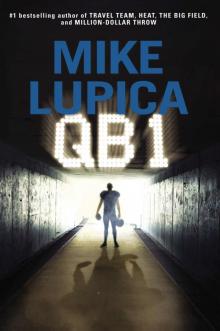 QB 1
QB 1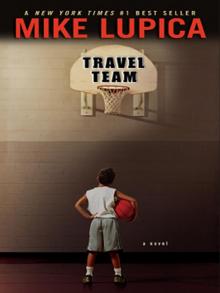 Travel Team
Travel Team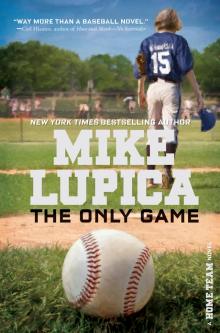 The Only Game
The Only Game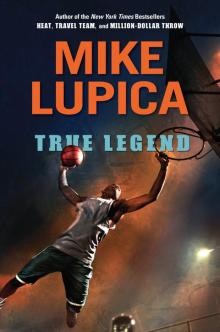 True Legend
True Legend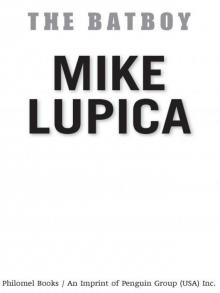 The Batboy
The Batboy Hot Hand
Hot Hand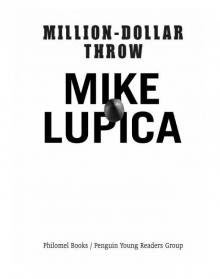 Million-Dollar Throw
Million-Dollar Throw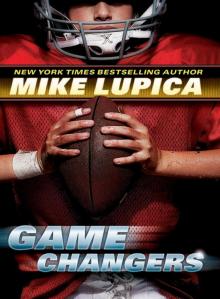 Game Changers
Game Changers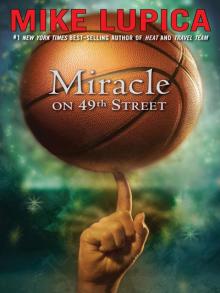 Miracle on 49th Street
Miracle on 49th Street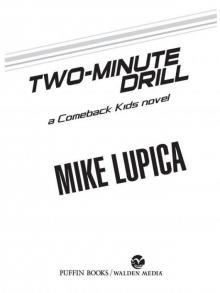 Two-Minute Drill
Two-Minute Drill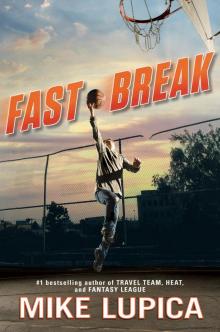 Fast Break
Fast Break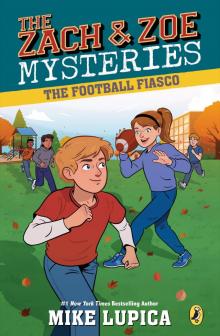 The Football Fiasco
The Football Fiasco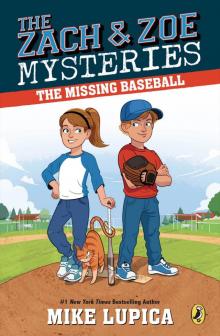 The Missing Baseball
The Missing Baseball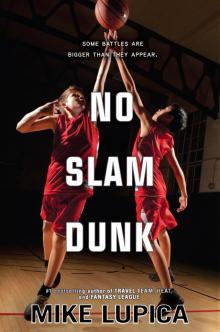 No Slam Dunk
No Slam Dunk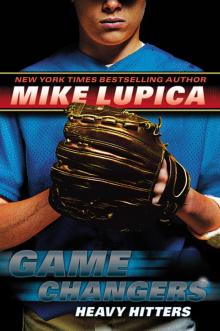 Heavy Hitters
Heavy Hitters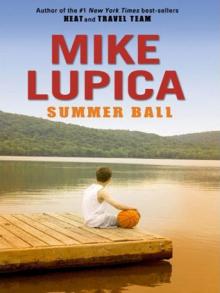 Summer Ball
Summer Ball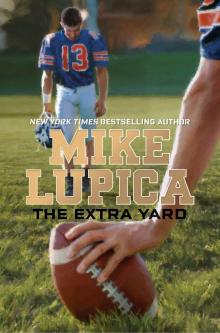 The Extra Yard
The Extra Yard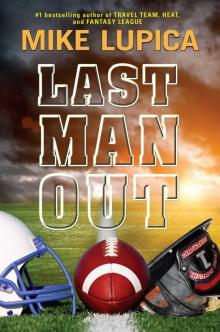 Last Man Out
Last Man Out